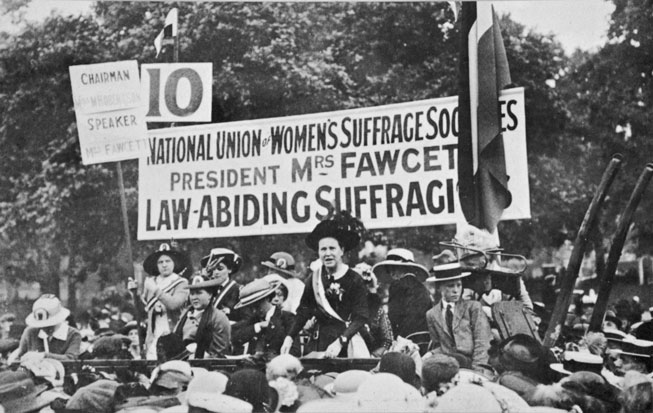
Suffragist Dame Millicent Fawcett, who worked tirelessly to achieve equal rights for women, will be the first female to be honoured with a statue in London’s Parliament Square

On Sunday, Prime Minister Theresa May announced that women’s rights campaigner Dame Millicent Fawcett would be honoured with a statue in London’s Parliament Square Garden. The statue, the first of a woman to be erected in the garden, will stand among other luminaries including Sir Winston Churchill, David Lloyd George, Field Marshal Jan Christian Smuts, Edward Stanley Earl of Derby, Viscount Palmerston, Sir Robert Peel, Benjamin Disraeli, Mahatma Ghandi and Nelson Mandela.
Theresa May said: “The example Millicent Fawcett set during the struggle for equality continues to inspire the battle against the burning injustices of today. It is right and proper that she is honoured in Parliament Square alongside former leaders who changed our country.”
Millicent Fawcett worked tirelessly as a women’s rights campaigner, and was president of the National Union of Women’s Suffrage Societies, now the Fawcett Society, a union that believed in the constitutional route to achieving the vote, and who campaigned peacefully to achieve this – the term ‘suffragette’ refers to the militaristic methods employed by some groups, while peaceful campaigners were known as ‘suffragists’.
The announcement comes after a campaign launched last year by Brazilian-born British feminist Caroline Criado-Perez, which called on the Prime Minister and Major of London to honour Fawcett, and which quickly gained the support of JK Rowling and Emma Watson, among others.
The statue will be unveiled in 2018 and will commemorate 100 years since the Representation of the People Act 1918, when the first British women gained the right to vote in the UK.
Women are also being recognised in other ways – in 2013 the Bank of England announced that Jane Austen will join the group of historical figures to appear on British banknotes on the new polymer £10 note to be released in September. The design includes a portrait of Jane, an image of her writing table and a quote from Pride and Prejudice: “I declare after all there is no enjoyment like reading!” (Miss Bingley, Chapter XI).
Related articles
|
Click here to subscribe! |





 © 2024
© 2024